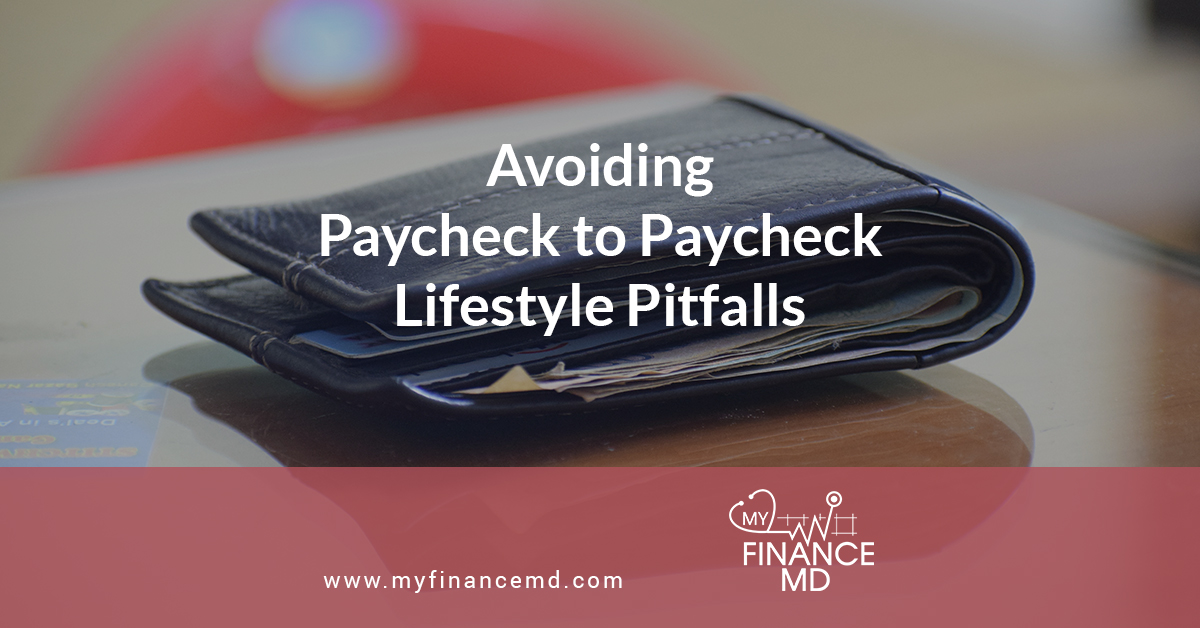
Do you have a paycheck mentality or a net worth mindset? Ana is a 30-year-old creative director for a top advertising company. She is able to lease a one-bedroom condo unit in the business district, get an SUV on a mortgage, and can afford daily luxuries. Ana may seem to fit the description of a “rich” person in the Filipino society. However, this is just one side of the coin. This millennial professional accumulates credit card debts faster than she earns. Just 3 months after getting her job promotion (and pay raise), she was already surviving on a paycheck-to-paycheck basis with a huge bulk of her net income going to her bills and debts.
The Filipino’s measure of success

Photo by Pixabay
In the Philippines, parents raise their kids to believe that there’s only one wayof living a meaningful life: earn a college degree, get a good job, start a family, and eventually retire. Being an employee and climbing up the corporate ladder for a better pay is considered the ultimate success. It’s a paycheck mentality. According to the book The Bogleheads’ Guide to Investing, a person with this mindset just focuses on increasing his active income (e.g. salary) to boost his wealth. In contrast, someone with a net worth mentality increases both his active and passive incomes.
Earning a good income doesn’t necessarily mean building one’s wealth. “Income is how much money you earn in a given period of time. If you earn a million in a year and spend it all, you add nothing to your wealth. You’re just living lavishly.” wrote the authors of The Bogleheads’ Guide to Investing. Creative director Ana may be earning more compared to thousands of her peers, but she’s not better off because she’s not building wealth. She needs to adopt a net worth mindset.
Your income: active and passive
In adopting a net worth mindset, there’s one concept you should learn well: passive income. This income is defined by Investopedia as “money being earned regularly with little or no effort on the part of the person who’s receiving it”. Sources of passive income include a mutual fund investment, shares of stocks, real estate, and royalty-earning ventures. An active income is the money you earn on endeavors that require your utmost attention, effort, and time such as your job. If you want to start thinking with a net worth mentality, you must create sustainable active and passive income sources.
Where do you stand?
Before exploring your active and passive income options, you should know where you stand. How much net worth is in your name? Get a piece of paper and write down your sources of income including your salary, earnings from part time jobs, dividends, etc. Then, subtract from your total income your debts. The resulting figure is your net worth or “wealth”. Don’t like what you see? Then it’s time to make life changes.
Do you REALLY need that?
Ana’s six-figure salary could’ve been a good starting point to build up her wealth has she made better financial decisions. She got a condo unit but failed to invest in a parking slot so she pays additional fees in a nearby pay parking area. Ana could’ve minimized her dine outs and prepared her meals as often as her schedule permitted. This is not only good for her pocket but also for her health. She spent on designer clothes and shoes instead of choosing clothing that suits her for a reasonable amount. Many of her purchases remained tucked under her bed, unboxed. Ultimately, Ana was living lavishly and way beyond her means. Perhaps, like many people, she believed that her money would never run out as long as she holds the job. Before buying anything especially non-essential items, ask yourself: Do I really need this right now?
There are some risks you shouldn’t take

Photo courtesy of Anthony Intraversato via Unsplash
The first and most important step in attaining financial freedom is to adopt the right mindset, the net worth mentality. Live within your means. Then, secure yourself. Insurance is a safety net against possible income loss due to unforeseen events such as a death of a breadwinner, accident, illness or disability. Prolonged hospitalization can wipe out your savings easily without sufficient insurance cover. Having an insurance plan is enough. You must make sure that you are adequately covered. A married individual generally needs a higher coverage than a bachelor because of his status as the breadwinner of the family. A young employee with a medical background of serious diseases may need to boost his medical insurance cover early on. Not all risks are worth taking, and one of them is not getting insured.
Choosing passive income sources
After securing yourself adequate insurance cover, you can start investing in passive income sources. You can begin with a modest investment portfolio of bond funds and shares of stocks of reputable companies. Seek the professional services of investment companies to guide you. It’s also important to know how to identify scams. If it’s too good to be true, it’s likely is. Remember that ALL investment ventures entail risks. The higher return it promises, the higher the risk you’ll be facing. Don’t put all your eggs in one basket. Allocate a portion to fixed income securities or high-interest earning bank products and a part on equity securities. When investing in shares of stocks, spread over various industries and stick to blue chips if you can.
Avoid a snowball of credit card debts

Photo courtesy of Pixabay via Pexels
It’s not the credit card that’s the problem; it’s the user. There’s a dangerous magic in purchasing items with a plastic card – you get stuff and your “money” back. The card returns to your wallet, unlike cash bills that disappear as you stroll around the mall. Reality will hit once you get the bill from your credit card company. A credit card is designed for convenience, but if you have cash, avoid the swiping. A credit card debt not paid in full on the next billing cycle earns an interest. If you can’t pay the entire amount on the following month (that is if you didn’t avail of any special payment scheme), you might as well postpone the purchase. Otherwise, this can trigger a snowball of debts and interest dues. Use your card wisely.
Amassing wealth doesn’t happen overnight, but adopting a net worth mentality is possible whatever your financial status. You will need to unlearn concepts that you upheld all your life such as the measure of success, the need to keep up appearances, and the incessant consumption of materials things you can live without. Essentially, you’ll need to change your perception of money. As an American businessman, Dave Ramsey once said:
“Financial peace isn’t the acquisition of stuff. It’s learning to live on less than you make, so you can give the money back and have money to invest. You can’t win until you do this.”
Guest post by: Boom Rizal
“Boom Rizal is an investor, a property consultant, a researcher and a writer. She finds helping other OFW’s in making good decisions when investing in various businesses and/or real estate properties as part of her daily life. She also love to take research in property innovation and writes articles advising readers on how to invest in a property.”
follow her:
- 7 Things you need to Know if you are a first time Credit Card User
- Millennials and Money: Are they in sync?
- How to know if you are Getting Richer Each Year?
- 9 Common Mistakes First Time Life Insurance Buyers Make and How to Avoid it
Latest posts by Pinky De Leon-Intal, MD, RFC (see all)
- Say Goodbye to Chronic Lifestyle Diseases (Hypertension, Diabetes, Cancer, Gout, etc.) with Right Food and Right Water - 23 May, 2023
- Embracing Superpowers: A Mom’s Journey as a Doctor, Professor, and Financial Consultant - 19 May, 2023
- Celebrating the Power of Women: Honored by Philippine Daily Inquirer - 17 May, 2023

